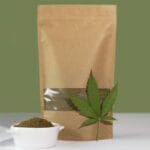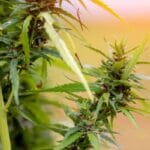Exploring diverse and innovative treatment modalities is paramount in a world where mental health has become a pivotal conversation. Depression, a pervasive and debilitating mental health condition, affects millions globally, transcending age, gender, and socio-economic boundaries. The burgeoning question, “Can CBD help with depression?” has sparked intrigue and hope among scientists, healthcare professionals, and those affected by depression alike.
This article embarks on a journey to explore the depths of depression, unravel the investigation of the therapeutic mysteries and effects of Cannabidiol (CBD), and investigate its potential role in providing solace to the tumultuous seas of depressive disorders, all while navigating through scientific findings, anecdotal evidence, and the legal and safety spectrums of CBD usage.
A Deeper Dive into Depression
Depression, often misconstrued as mere sadness, is a complex and multifaceted mental health disorder that casts a shadow on the emotional, physical, and social well-being of those it engulfs. It manifests in various forms, such as Major Depressive Disorder (MDD), characterized by persistent low mood and aversion to activity, and Persistent Depressive Disorder (PDD), which extends over a longer duration, subtly yet significantly impairing daily functioning.
The etiology of depression intertwines with genetic, biological, environmental, and psychological factors, creating an intricate and individual-specific web. The ripple effects of depression extend beyond emotional turmoil, impacting occupational productivity, relationships, and overall quality of life, thereby necessitating a thorough understanding and comprehensive management approaches.
CBD – A Brief Overview
Cannabidiol, popularly known as CBD, has emerged as a beacon in the wellness and therapeutic landscapes, offering a non-psychoactive alternative to its controversial cousin, THC (Tetrahydrocannabinol). Extracted from the Cannabis sativa plant, CBD has carved its niche in various forms, including oils, edibles, topicals, and vapes, each catering to diverse preferences and applications.
The allure of CBD extends beyond its versatility, encompassing potential therapeutic properties such as anti-inflammatory, anti-anxiety, and neuroprotective effects. As CBD permeates the market, from skincare to dietary supplements, its role in mental health, particularly in the context of depression, has become a focal point of scientific research and consumer interest, exploring avenues where it may bridge gaps in traditional depression treatment and modalities.
The Science Behind CBD for Depression
The scientific exploration into CBD as a potential ally against depression is burgeoning, albeit in nascent stages. Preliminary studies have illuminated CBD’s interaction with the serotonin receptors in the brain, a neurotransmitter synonymous with mood regulation. The hypothesis that CBD may enhance serotonin signaling has become a cornerstone in researching its applicability in managing depressive disorders.
Furthermore, animal studies have demonstrated an antidepressant-like and antidepressant effect because of CBD, paving the way for further exploration in human clinical trials. However, the scientific community treads with cautious optimism, acknowledging the need for robust, large-scale studies to validate preliminary findings, decipher the optimal dosages, and unravel the long-term effects and safety of CBD in managing depression.
Anecdotal Evidence and Real-life Stories
While scientific research meticulously navigates through the complexities of CBD and depression, anecdotal evidence provides a window into the real-world applications and experiences of individuals. Stories of those incorporating CBD into their depression management regimen often highlight improved mood, enhanced sleep quality, and a subtle yet significant upliftment in overall well-being.
For some, CBD has acted as a calmative agent, providing a buffer against the tumultuous emotional storms characteristic of depression. However, the spectrum of experiences is vast and varied, with some reporting minimal to no impact, underscoring the importance of recognizing the individual-specific nature of CBD’s effects. Anecdotal stories, while not substitutes for scientific evidence, offer valuable insights, weaving a tapestry of hope, skepticism, and curiosity that fuels further exploration into the realms of CBD and mental health.
The Legal Landscape of CBD
Navigating through the legalities of CBD can be a complex journey, as regulations vary significantly across countries and even states. In some regions, CBD is welcomed with open arms, and utilized in various sectors from wellness to culinary. Conversely, in other areas, its use is restricted or enveloped in legal complexities.
The legal status of CBD is often influenced by factors such as its source (hemp-derived vs. marijuana-derived) and THC content. For consumers and healthcare professionals alike, adhering to local laws, staying abreast of regulatory changes, and advocating for evidence-based policies become paramount in ensuring safe and legal access to CBD.
Safety and Quality Concerns
The burgeoning popularity of CBD has led to a proliferation of products in the market, bringing forth concerns regarding safety and quality. The lack of stringent regulatory oversight in some regions can result in inconsistent products in quality, potency, and purity.
Potential side effects, such as dizziness, dry mouth, and interactions with other medications, further underscore the importance of cautious use. Consumers are encouraged to seek products from reputable sources, prioritize third-party lab-tested products, and engage in informed discussions with healthcare professionals to navigate through the sea of CBD safely and effectively.
Healthcare Professionals and CBD
The perspective of healthcare professionals on the potential treatment CBD as a potential adjunctive treatment for depression treating anxiety is characterized by cautious optimism. While recognizing the potential illuminated by preliminary studies and anecdotal evidence, healthcare professionals often emphasize the need for further research to establish efficacy, safety, and standardized dosing guidelines.
Engaging in transparent discussions with healthcare providers about CBD use, potential risks, and benefits, and exploring its role within a comprehensive mental health management plan becomes pivotal in ensuring safe and informed use of CBD.
Alternative Treatments for Anxiety and Depression
Exploring the landscape of alternative treatments for depression unveils a myriad of options, including psychotherapy, mindfulness meditation, yoga, and dietary modifications. These modalities, often utilized in conjunction with conventional treatments, aim to provide a holistic approach to managing depression.
The incorporation of CBD into this multifaceted approach is being explored, with some individuals finding synergistic benefits in combining CBD with other alternative treatments. The exploration of a holistic, individualized approach treat depression that intertwines various modalities offers a promising avenue towards comprehensive mental health care.
Future Prospects
The future of CBD in the realm of depression management is teeming with possibilities and questions. Ongoing research aims to delve deeper into understanding the mechanisms through which CBD may exert its effects, optimal dosing strategies, and its role in managing various forms of depressive disorders.
The evolution of the legal landscape, societal perceptions, and the development of novel CBD-based products will also significantly shape its role in future mental health management strategies. Engaging in continuous dialogue, research, and exploration will pave the way towards unveiling the full spectrum of CBD’s therapeutic potential.
CBD Dosage and Administration Methods
Navigating through the myriad of CBD products and determining an optimal dosage can be a complex endeavor, especially given the diverse range of administration methods available.
– Various Methods of Administering CBD:
– Oils and Tinctures: Often administered sublingually, CBD oils and tinctures allow for quick absorption into the bloodstream, providing rapid effects. This method allows for easy dosage adjustment and is often preferred for its efficacy and convenience.
– Edibles: CBD-infused foods and beverages, such as gummies or chocolates, offer a palatable way to consume CBD. However, the onset of effects is typically slower as it must pass through the digestive system.
– Topicals: Creams, balms, and lotions infused with CBD can be applied directly to the skin. While ideal for localized pain or inflammation, its utility in managing depression, which necessitates systemic absorption, may be limited.
– Vapes: Vaping CBD ensures rapid delivery through the lungs into the bloodstream. However, concerns regarding lung health and the lack of stringent regulation in vape products necessitate cautious consideration.
– Challenges and Considerations in Determining Dosage:
Determining an optimal CBD dosage for depression is encumbered by variables such as individual body chemistry, the severity of depression, and the specific product being used. The lack of standardized dosing guidelines and limited research into the therapeutic dosage for different mental health conditions further complicates this endeavor.
– Importance of Gradual Dosage Adjustment:
Adopting a “start low and go slow” approach is often recommended when initiating CBD. Starting with a low dose and gradually escalating allows individuals to gauge their body’s response and minimizes the risk of potential side effects. Keeping a detailed log of dosages and observed safety and side effects, can be instrumental in identifying the optimal dose for individual needs.
The Stigma Surrounding CBD
The journey of CBD through societal perceptions has been a tumultuous one, significantly influenced by its association with the cannabis plant and the stigmatization of cannabis use.
– Societal and Individual Stigmas:
The societal stigma surrounding CBD often stems from misconceptions, associating it with psychoactive effects and categorizing it alongside illicit substances. On an individual level, this stigma may manifest as reluctance as many people explore or disclose CBD use, particularly in contexts where cannabis has been historically demonized.
– Efforts and Campaigns for Destigmatization:
Various organizations, advocates, and researchers have embarked on campaigns to destigmatize CBD, emphasizing its non-psychoactive nature and potential therapeutic benefits. Educational initiatives aimed at disseminating accurate information, debunking myths, and sharing research findings play a pivotal role in shifting perceptions and fostering a more informed and open dialogue regarding CBD.
– Stories and Case Studies:
The impact of stigma on individuals’ willingness to explore CBD is palpable. For instance, Jane (name changed for privacy), a 40-year-old woman experiencing chronic depression, hesitated to try CBD despite conventional treatments providing limited relief from depressive symptoms. Her reluctance was rooted in fears of societal judgment and a lack of comprehensive, unbiased information. Jane’s story is emblematic of many, where stigma erects barriers, hindering access to potential therapeutic avenues.
CBD and Other Mental Health Conditions
The exploration of CBD’s potential extends beyond depression, reaching into various realms of mental health, including treatment resistant anxiety disorders, Post-Traumatic Stress Disorder (PTSD), sleep disorders and bipolar disorder.
– Research and Anecdotal Evidence:
– Anxiety: Some studies suggest that CBD may have anxiolytic properties, potentially reducing symptoms of anxiety disorders by impacting serotonin receptors and modulating the stress response.
– PTSD: Preliminary research and anecdotal reports indicate that CBD might offer relief from certain PTSD symptoms, such as nightmares and replaying negative memories.
– Bipolar Disorder: The research on CBD’s efficacy in managing bipolar disorder is limited and mixed, with some studies suggesting potential benefits and others indicating possible risks.
– Commonalities and Differences:
While the use of CBD for various mental health conditions often hinges on its potential to impact mood and stress response, the specific applications, efficacy, and research findings can vary significantly between conditions. For instance, while there is relatively robust research supporting CBD’s role in managing anxiety, the evidence supporting its use in bipolar disorder is less clear and somewhat controversial.
– Notable Studies:
A study published in “The Permanente Journal” in 2019 highlighted that 79.2% of patients reported decreased anxiety scores within the first month of CBD use. Another study in the “Journal of Psychopharmacology” suggested that CBD might attenuate the acute autonomic response to stress and its anxiogenic effects, although further research is needed.
Personalized Medicine and CBD
The concept of personalized medicine – tailoring medical treatment to the individual characteristics of each patient – opens new horizons in managing mental health conditions like anxiety and depression with CBD.
– Concept and Application:
Personalized medicine seeks to customize healthcare, with medical decisions, practices, and/or products being tailored to the individual patient. In the context of CBD, this might involve determining optimal dosages, administration methods, and formulations based on an individual’s genetic makeup, lifestyle, and response to treatment.
– Genetic Testing and Biomarkers:
The potential for using genetic testing or other biomarkers to predict responses to CBD is an area of burgeoning research. Identifying genetic markers that correlate with positive responses to CBD could enable healthcare providers to determine which individuals are most likely to benefit from its use effective treatment alone.
– Research and Companies:
Companies like Endocanna Health are exploring the intersection of genetics and CBD, offering DNA tests designed to identify optimal CBD and cannabis products for individuals. However, the science in this area is still emerging, and further research is needed to validate and refine these approaches.
Ethical Considerations
The promotion and use of CBD for depression, particularly considering the current state of research, brings forth various ethical considerations.
– Promotion and Use:
The ethical considerations of promoting CBD for depression hinge on ensuring that claims are substantiated by robust scientific evidence and that potential risks and limitations are clearly communicated to consumers.
– Ethical Marketing:
Ensuring that marketing practices are ethical involves providing accurate, balanced information, avoiding overstated claims, and ensuring that consumers are aware that while CBD may offer benefits, it is not a cure for depression and anxiety or other mental health conditions.
– Implications in Various Populations:
The ethical implications of recommending CBD use in various populations, such as young adults or pregnant individuals, involve considering the potential risks and unknowns. For instance, the impact of CBD on fetal development is not well understood, and as such, its use during pregnancy is generally not recommended.
Ethical Considerations
The ethical landscape of promoting and utilizing CBD for depression is intricate, necessitating a delicate balance between advocating for potential therapeutic benefits and ensuring accurate, substantiated information is disseminated.
– Promotion and Use:
The promotion of CBD, especially as a potential aid for depression, must be tethered to the existing scientific evidence, which is still evolving. Ethical considerations involve ensuring that the potential benefits are not overstated and that consumers are made aware of the current state of research, including limitations and uncertainties.
– Ethical Marketing:
Marketing practices for CBD products must be rooted in ethics, ensuring that claims are substantiated and that potential risks are transparently communicated. Ensuring consumers have access to accurate, balanced, and comprehensive information is pivotal to enable informed decision-making and safeguard against potential misapplications of CBD.
– Implications in Various Populations:
Recommending CBD use in specific populations, such as young adults or pregnant individuals, carries additional ethical weight. The potential risks, such as the impact of CBD on developmental stages or during pregnancy, must be clearly communicated, and recommendations should be made conservatively, in alignment with the available scientific evidence and ethical guidelines.
Section 15: Global Perspectives on CBD
The global perspective on CBD is as diverse as the countries and cultures that comprise our world, with views on its use for mental health being influenced by legal, social, and historical contexts.
– Different Cultural and Country Views:
The perception and utilization of CBD for mental health vary significantly across different cultures and countries. In some regions, CBD is embraced as a wellness product and is readily accessible, while in others, it may be heavily regulated or stigmatized. Cultural beliefs, legal frameworks, and historical contexts significantly shape the acceptance and application of CBD in different global locales.
– Global Market and Trends:
The global market for CBD has witnessed a surge, with notable trends including the proliferation of CBD-infused wellness products, the increasing accessibility of CBD products online, and the gradual destigmatization of CBD in some regions. However, the market is also characterized by disparities in product quality and regulatory oversight, with the need for global standards and guidelines being evident.
– International Collaborations and Research:
International collaborations in CBD research offer the potential to pool resources, knowledge clinical data, and expertise to explore its applications in depression more comprehensively. Such collaborations can navigate through the diverse regulatory and cultural landscapes, fostering a more unified, global understanding of CBD’s potential and limitations toward a new age in managing depression.
Conclusion
Embarking on a journey through the complexities of depression and the potential role of CBD unveils a tapestry woven with scientific findings, anecdotal experiences, legalities, and safety considerations. The question, “Can CBD help with depression?” opens doors to exploration, inviting researchers, healthcare professionals, and individuals to delve into understanding, experimenting, and dialoguing about the potentials and pitfalls of CBD in mental health.
As we navigate through the evolving landscape, prioritizing safety, legality, and open, informed discussions becomes paramount in exploring the potential of CBD as a beacon of hope and healing in the tumultuous seas of depression and mood disorders.
Disclaimer: This article does not provide medical advice, diagnosis, or treatment. Always seek the advice of your physician or another qualified health provider with any questions you may have regarding a medical condition.
Daniel Casciato is one of the co-founders of Pennsylvania Cannabis News.







